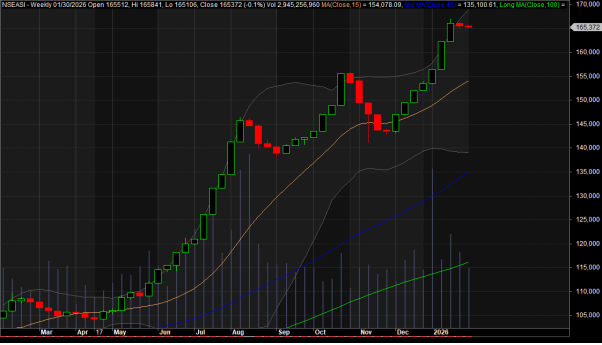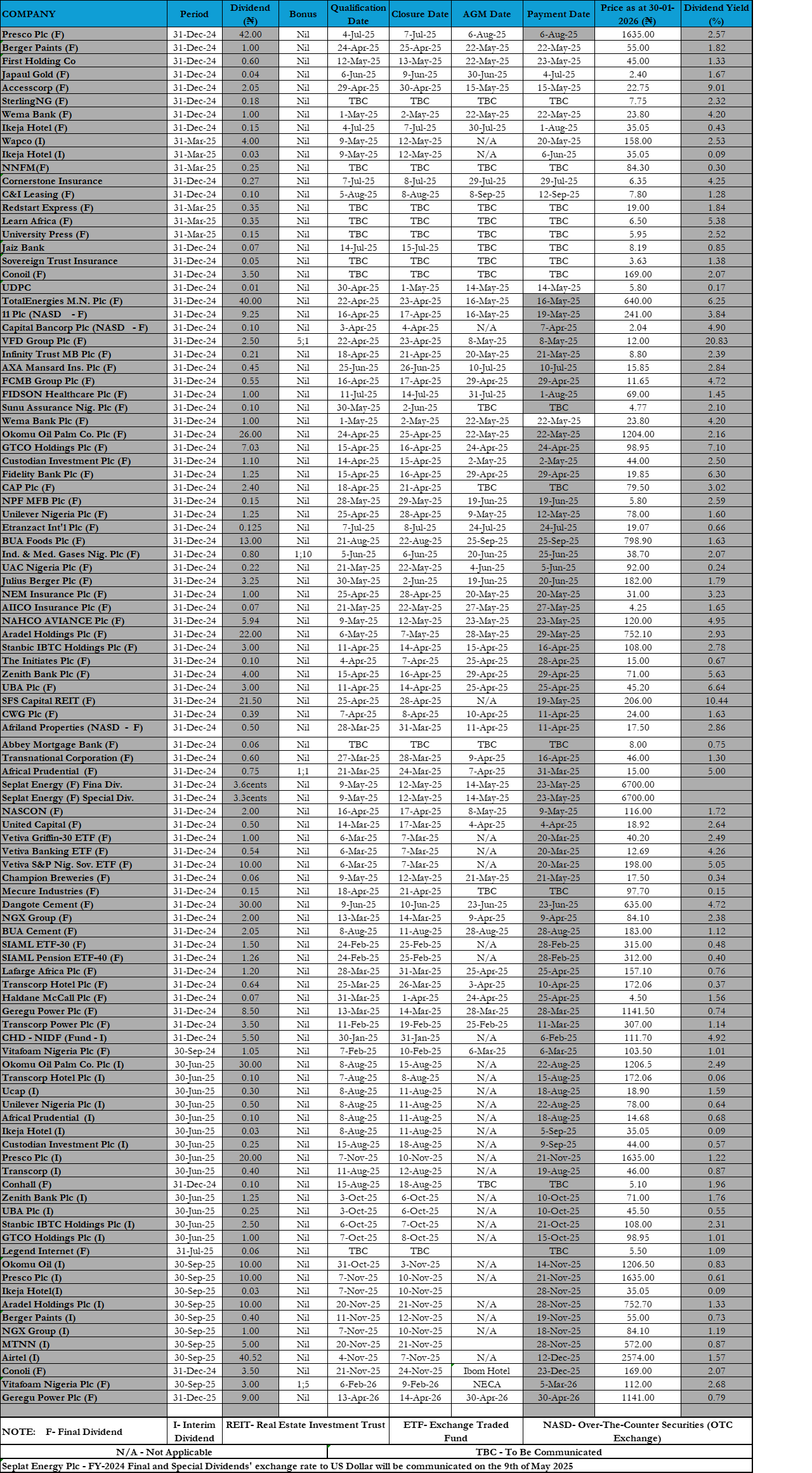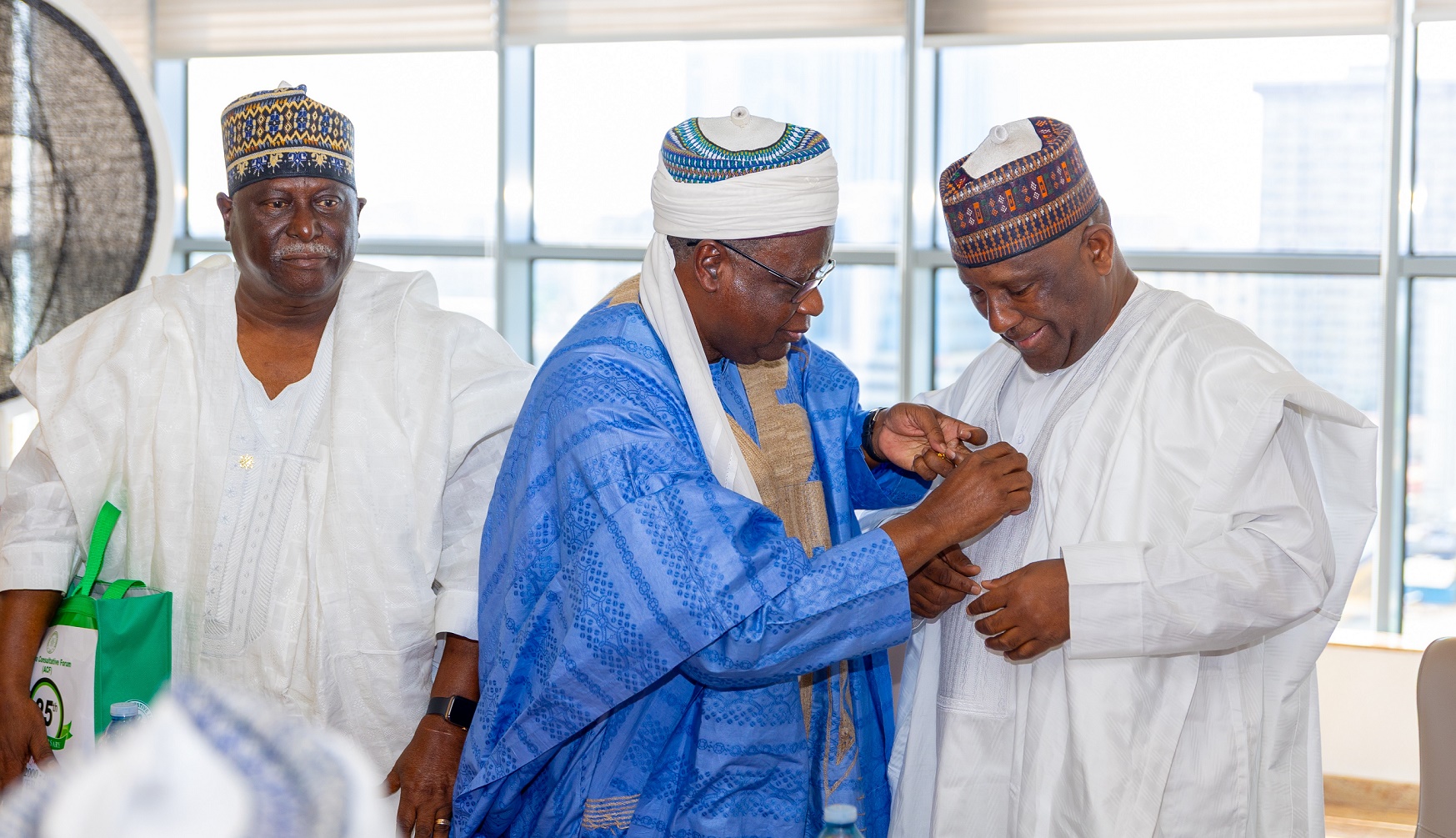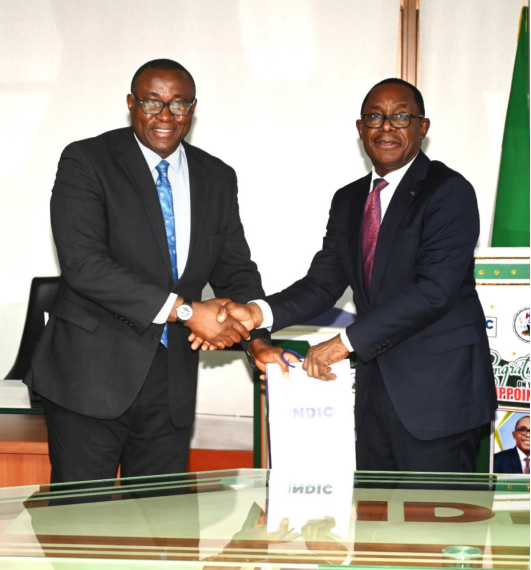
Photo caption: Dr. Akinwunmi Adesina, President of the AfDB (right), Rania A. Al Mashat, Minister of International Cooperation — Arab Republic of Egypt (middle) and Andrew Mitchell, UK’s Minister of State (Development & Africa), at the ongoing 2023 Annual Meetings of the bank in Egypt.
#UKInternationalDevelopment
The African Development Bank (AfDB) on Thursday released its annual report which highlighted its critical contributions to the continent’s development in 2022 and the wellbeing of its people within the period.
According to the AfDB’s Annual Development Effectiveness Review published yearly since 2011, which assesses the bank’s support to the sustainable development of African countries, investing up to $8.2bn in 2022, signalling a return to pre-pandemic levels.
Issues related to fragility and conflict, climate change and poverty, the report noted, will continue to present serious challenges for the continent. African countries must, therefore, redouble efforts to strengthen their capabilities, resources, and institutions, to build greater resilience to future shocks.
The report specifically monitored contributions to AfDB’s High 5 strategic priority areas driving Africa’s transformation: Light Up and Power Africa, Feed Africa, Industrialise Africa, Integrate Africa, and Improve the Quality of Life for the People of Africa.
Against the backdrop of a continent still grappling with the residual impact of the COVID-19 pandemic, the 2023 edition of the review titled ‘Enhancing Africa’s Resilience’, reflected on the impact of multiple shocks to the continent.
In 2022, the bank’s bold response to the challenging operating environment, AfDB said in a statement, saw it leveraging its resources, technical expertise and role as partner of choice among African countries, to deliver tangible development results across the High 5s. The result: 12.3 million people gained access to new or improved water and sanitation services while another 4 million people benefited from the Bank’s private sector investee operations. To support the continent’s economic development and connectivity, the Bank also facilitated the construction or rehabilitation of 833km of roads.
Sluggish economic growth, a global food crisis and climate-driven extreme weather events, it added, threaten to slow the continent’s post COVID-19 pandemic recovery efforts, undercutting or even reversing, hard-won development gains. Russia’s invasion of Ukraine has caused further hardship across the continent, disrupting food and energy supply chains which have led to sharp price increases. Their effect has been to drive an additional 15 million people into extreme poverty.
Amidst a slow but steady recovery from the pandemic, Armand Nzeyimana, Acting Director of the Development Impact and Results Department, pointed to climate change as one of the remaining threats to the continent.
“With nine out of the ten most vulnerable countries in the world located on the continent, Africa is the least climate-resilient region globally. The severe impact of climate change on Africa underscores the urgent need to prioritise efforts towards combating its adverse effects,” he said.
The Bank’s efforts to improve transparency and accountability as one of its goals to strengthen the efficiency and effectiveness of its operations, led to recognition.
Beyond the immediate challenges and vulnerabilities, in 2023, AfDB says it will finalise its new Ten-Year Strategy, which will guide its strategic direction and priorities. Building on a successful replenishment of the African Development Fund in 2022, the Bank remains committed to pursuing efforts to scale up financing that will strengthen and support Africa’s achievement of its development priorities and the Sustainable Development Goals (SDGs).
As Africa strives to build back better in the wake of the COVID-19 pandemic and economic shocks, there is the need to collectively renew the Bank’s commitment to accelerate progress towards the SDGs.
In the foreword to the report, AfDB President, Akinwunmi Adesina noted the need to raise its “ambitions even further if Africa is to achieve its development goals. The Bank’s new Ten-Year Strategy will guide our efforts to promote and accelerate inclusive, climate-resilient growth and development, as we continue to make the High 5s and the Sustainable Development Goals a reality for Africa.”












